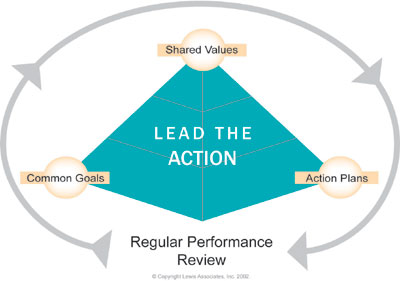History has brought us to a moment where teams are recognized as a critical component of every enterprise — the predominant unit for decision making and getting things done. Nonetheless, most aspects of business systems, such as measurement, rewards and compensation, have not yet “captured” the significance of teams. Research on successful teams indicates they have Shared Values, Shared Goals and Shared Plans and a system of regular Performance Review. In addition, the Team Leaders play a significant role in Leading the Action.

Today the field of strategy and strategic planning is in a state of turmoil. Traditionally it was the domain of top management, strategic planners and strategy consultants; but there have been "barbarians at the gate" for a decade or longer. Strategy is as much emergent as planned, and managers need to learn about "crafting strategy" -- not just setting strategy. The real leverage is not in creating the right strategy, but in increasing managers' capabilities to surface and test the assumptions that lie behind the strategies they advocate.
Researchers conclude that there are two primary qualities that were indispensable for people who were promoted to positions of greater responsibility. The first quality is the ability to function well in a crisis: the ability to calmly analyze the facts, gather information, reach conclusions, make decisions and work with others to respond effectively and solve the problem. The second quality is the ability to function well as a member of a team. This tendency towards cooperation rather than confrontation was evident early in the individual's career. During our Team Effectiveness workshop series, participants learn the critical skills of communications, group dynamics, problem solving and achieving work life balance.
Teams outperform individuals acting alone or in larger organizational groupings, especially when performance requires multiple skills, judgments and experiences. Organizational leaders can foster team performance best by building a strong performance ethic rather than by establishing a team-promoting environment alone. Team Leadership is a developmental process where managers learn first how to create a team; then use it to solve problems, devise plans and identify opportunities.